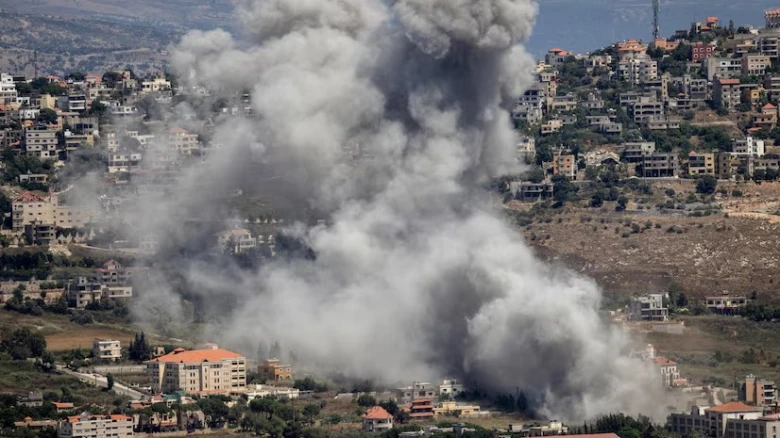The declaration is initially valid for 48 hours, but it can be extended by cabinet ministers if needed...
Digital Desk: Israel has declared a 48-hour emergency as tensions with Lebanon continue to rise. The country's Defence Minister, Yoav Gallant, announced a "special situation in the home front," enabling the Israel Defence Forces (IDF) Home Front Command to impose restrictions. This measure gives authorities more power over the civilian population, streamlining efforts to protect them in the face of potential threats. The declaration is initially valid for 48 hours, but it can be extended by cabinet ministers if needed.
The escalation follows recent threats from Hezbollah, a militant group operating in southern Lebanon. Earlier today, IDF spokesperson Rear Admiral Daniel Hagari issued a stark warning to Lebanese citizens residing in the south, advising them of possible attacks by Israel in response to Hezbollah's actions. "We warn the Lebanese citizens who are in southern Lebanon; we recognize that Hezbollah is now preparing to shoot widely into Israeli territory near your home. You are in danger. We attack and remove Hezbollah threats. Anyone who is near the areas where Hezbollah operates is required to stay away from them immediately," Hagari stated.
Hagari further cautioned that Hezbollah is expected to launch rockets, missiles, and unmanned aerial vehicles toward Israeli territory. He emphasized the importance of adhering to "life-saving" instructions from the Home Front Command, which will guide residents on whether to remain near or inside protected areas. "The IDF is doing and will do everything necessary to protect the citizens of the State of Israel," he added.
The current tension is partly attributed to the recent killing of Hamas political leader Ismail Haniyeh in Tehran, which Iran's Islamic Revolutionary Guard Corps (IRGC) announced on July 31. While Israel has not confirmed or denied responsibility for Haniyeh's death, the incident has led to heightened fears of retaliation from Hezbollah, a group with close ties to Iran.
As the situation unfolds, the Israeli public remains on high alert, preparing for the possibility of further incidents and bracing for the fallout from the escalating conflict. The coming days will likely be critical in determining whether tensions will escalate further or if diplomatic efforts can de-escalate the situation.

Leave A Comment